- Home
- Roger Zelazny
If at Faust You Don't Succeed Page 2
If at Faust You Don't Succeed Read online
Page 2
He almost turned back, but some .stubbornness in his nature decided him to persevere. The final turning of the alley was just ahead, and after that it would give out to the noisy bustle of the market square.
He approached the corner, walking more rapidly now, his scholar's gown rustling as he urged his thin shanks to greater speed. He went by a darkened doorway on his right and another on his left. There was light ahead.
And then there was a voice at his shoulder, saying, "Excuse me, sir, a moment of your time…"
Faust stopped and turned, prepared to chastise the importunate wretch who had the temerity to delay him. He looked into the doorway but could see no person. He was about to go on when he heard a whirring sound in the air. His rapid brain told him that something was amiss; but the insight came to him almost simultaneous with the crashing of a blunt object of considerable hardness against his temple. He saw stars for a moment, and great shooting comets, and then knew nothing as black Unconsciousness gathered him into her dark mantle.
CHAPTER 4
While this was going on, in another part of town, at the little tavern called the Pied Cow, a tall, yellow-haired jackanapes of a fellow was having a morning bowl of borscht at one of the rustic tables set outside. He was a tall, thin fellow, cleanshaven in the new Italian fashion, his clothing a gentleman's cast-offs, his head o'er-topped by a mass of unruly curls. He sat now, thin features intent, red lips pursed as he surveyed the street.
This jackanapes, whose name was Mack, and whose sobriquet was the Club, a reference to the instrument that he carried in his belt, and used more often than an honest man would, had come to Cracow, some say from Troyes in Frankland, others from the stews of Londontown in distant England, to seek his fortune. Mack the Club was not prepared to let his fortune wait its own sweet time to call. He was an enterprising rogue, quick-witted and not unintelligent, who had spent a year in a monastery learning the scrivener's trade before deciding to follow more direct methods of making his fortune.
Hearing of Faust, he had spied upon the learned doctor, well aware of Faust's reputation as a necromancer who had won great wealth in this world in the form of precious metals used in his alchemical pursuits, and gifts and souvenirs from grateful kings who had found the doctor's remedies efficacious in the treatment of their myriad woes.
Mack had devised a scheme to rob the prominent doctor, figuring that a magician like Faust who has piled up goods in Heaven has little need for the dross of this Earth. Mack had accordingly taken unto himself a confederate, a loutish Lett who had no skill but the ability to waylay passersby by knocking them over the head with his cudgel. Mack had determined that this was the very day on which he would divest Faust of his more portable worldly goods.
For a week Mack and the Lett had scouted out the territory and noted the movements of the good doctor. Faust was a moody sort and not given to those regularities of habit that make honest men so easy to steal from. For one thing, he stayed indoors a lot, pursuing his magical experiments. But even Faust had to come out occasionally, and when he did, his footsteps always moved in a preordained direction, down Little Casimir Street and into the Devil's Walk, the shortcut to the great Jagiellonian University.
When at last Faust emerged on this Easter Sunday, Mack's scheme was set and all was in readiness. The Lett had been stationed in a dark doorway in the alley, and Mack took up his position at the Tavern of the Pied Cow opposite Faust's dwelling place. And now the time had come, for the Lett had agreed to rush back to the tavern to warn Mack if anything went wrong at his end. Mack finished his borscht, laid down a copper coin for payment, and, moving in a leisurely way that belied his inner excitement, strolled over to the doctor's residence. A glance up and down the street ascertained that the good folk of the neighborhood were away for Easter services. Under his arm Mack had a parcel of books purporting to give magical formulas. He had picked them up at no cost from a monastery library in Czvniez. If the unexpected should occur and someone should enquire as to his purpose in the doctor's house, Mack could say he was delivering these books, or offering them to the doctor for sale; for Faust was known to collect such things in his quest for the formula for the Philosopher's Stone.
Mack strolled to Faust's house. He knocked at the door for form's sake. No one responded. He had seen the landlady leave earlier for services, her wimple somewhat askew, for she was known to be a tippler, and a basket of herbs and simples on her arm, since the good woman was much given to visiting her sick aunt and plying her with country remedies.
Mack tried the door. It was latched with a big iron key of simple design. Mack had its counterpart in his pocket, and he took it out now and fitted it to the lock-hole. The key at first would not budge, and Mack wiggled it back and forth, then withdrew it and greased the key from a small container of badger's fat, a sovereign remedy for sticking locks. The key turned, and he pushed the door open.
It was twilight in the doctor's room, for the bright sunlight had no direct means of ingress, but rather filtered in after due reflection on the shadowy wall. Virgil's pale bust seemed to watch him as he stepped noiselessly through the room, the floorboards forbearing to creak, so light was his passage. The room still held fumes of mercury and sulphur and burnt candles and mouse droppings. The glass bottles and retorts of the doctor's alchemical equipment stood on a nearby table, stray glints of light reflected from their glassy surfaces. There in one corner was the doctor's sleeping cot, two planks laid across two low trestles, yet with an ermine mantle thrown over it that revealed the doctor's luxurious tastes.
Mack paid no attention to these. They were but the stage settings for his deed, which was to find that which was small, valuable, and—since he was in his own way a connoisseur—beautiful as well. For example, that single emerald lying carelessly by itself on the big deal table that was the doctor's work space, next to the crystal ball with the skull lying next to it. The emerald would do very nicely for openers. Mack made his way toward it. His hand, with its long fingers not too clean around the knuckles, was about to close on the object, when suddenly there was a very loud sound from within the room.
Mack was frozen in midflinch, for that sound, coming as a crash of thunder in the high mountains when the autumn storms come rushing down from the north, seemed to presage a reversal of the natural order of things, for how else explain why Nature's loud hurrah had come from within the room rather than outside where it belonged? And how explain the sudden coruscation of fire that appeared spontaneously in the middle of that dark-walled room, leaping up from the floorboards in great licking tongues of red and orange flame?
Still frozen, his mouth agape with wonder, Mack saw a figure form up, mistily at first and then with sharp definition, in the middle of the flames. It had the appearance of a man, a longheaded man with sleek black hair with a natural part in the middle, with a thin moustache and that short, pointed beard known as an imperial. He was dressed in dark clothing of somber magnificence, and bore with him a roll of parchment tied with a red ribbon.
"Greetings, Dr. Faust," said the figure, stepping out of the flames that then extinguished themselves. "I am Mephistopheles, a prince in the forces of Darkness, thrice holder of the Bad Deed of the Year award from Standard Demonics, one of our great multitemporal corporations."
Mack came unfrozen sufficiently to say, in a clumsy stutter unlike his usual glibness, "Oh. Hello. Pleased to make your acquaintance."
"You are surprised, perhaps, by my somewhat unorthodox entrance?"
"Oh, no, not at all," Mack said, for whatever else he would think when his brain unfroze sufficiently to permit cerebration, he knew it would not be well to offend this being. "I mean, whatever seems suitable."
"I made the Little Grand Entrance—there not being room here for the Grand Grand Entrance, involving as it does timed explosions of rockets and barrels of gunpowder—to offer, in a moment and in a compact metaphor, my bona fides. I am indeed Mephistopheles, a prince of demons, and I do indeed come from The Other Side
with an offer I think you'll be unable to turn down."
Mack had by now recovered his sangfroid, for he had grown accustomed, in his way of life, to sudden changes of fortune. True, he had never encountered a devil before, but this sort of thing was only to be expected in that day and age when miracles took place daily from one end of Europe to another, and the effects of witchcraft were a matter for continual comment.
Mack was aware, of course, that this great demon Mephistopheles had made a mistake, thinking he was the learned doctor Faust. So even demons could be in the wrong! But he wasn't about to correct him.
For one thing, it probably wouldn't be safe, not after Mephistopheles had gone to all the trouble of staging a Little Grand Entrance; and for another, it sounded as if some profit might be gleaned from this fortuitous encounter.
"I'd very much like to hear your offer," Mack said. "Do take a seat—that trestle chair should serve you well enough if you don't burn through it—and tell me what you had in mind."
"I thank you for your courtesy," said Mephistopheles, sweeping back his coattails as he sat, and causing the tallow candle in its charred oaken container to burst spontaneously into flame. Several more candles followed suit. At last getting the lighting as he wanted it, so that it cast long, sinister shadows across his face, Mephistopheles said, "How would you like, for openers, wealth of an extent and a greatness undreamed of since the days when Fabius Cunctator sacked Carthage? This wealth would be in the form of many well-made caskets full of gold coins of a purity undreamed of in earthly coinages. And it would be accompanied by barrels of the most precious stones, pearls the size of hens' eggs, diamonds as large as pomegranates, and an emerald large enough to form a dining table for six persons. And there would also be a perfect set often matched rubies of deepest fire, each the size of a horse's turd. And there would be much more besides, the detailing of which would tax even supernatural vocal cords and which may well be left to the imagination."
"I get the idea," Mack said. That sounds very good indeed. It would be churlish of me to ask you to specify the exact number of barrels of gems and caskets of gold. Even if it were only one of each it would be a most excellent present."
"These are not presents," Mephistopheles said. "They may be considered payment for a service I shall require of you, and for one thing more."
"It's that one thing more I'm afraid of," Mack said. "No offense meant, of course."
"None taken. It is a pleasure to be able to speak frankly. But there is no trick here, Faust. Do you think the Dark Powers would go to all the trouble of hiring my services and staging a Little Grand Entrance all for the purpose of duping you? Your credulity might be tested at far less expense!"
"Hey, don't get me wrong, the wealth thing sounds very good. But was there anything else? Like, who am I supposed to enjoy this wealth with?"
"As for that," said Mephistopheles, his eyes sparkling as the thought of concupiscence entered his mind,
"we will also provide you with a bevy, or even two bevies, of such beauteous maidens as the world has seen only in its fevered dreams of hopeless longing. These young ladies, Faust, each of them fit for a potentate, come in a variety of delectable shapes and colors, with hairstyles to suit every mood. In addition to their pulchritude, they also excel in the arts of love, possessing deliciously soothing skills as well as intoxicatingly exciting ones. Some of these ladies can give you intellectual companionship, Faust, while others will suit your brutish or childish moods, while still others will just be around to bring you your morning borscht. They also have the advantage of loving, next to you, nothing so well as lying in a cool chamber in a cataleptic sleep until their services are required again. And not only are they a practically inexhaustible gift of sensuality in themselves, they all have best friends, sisters, and mothers, who can provide piquancy by standing by to be seduced."
"Why, where you please," Mephistopheles said. "But if none of the present divisions of the world please you, we can take you elsewhere in time, to any moment in any place anywhere, even the ones that do not yet exist, because there is a law that says that that which is conceived must exist from the moment of its conception. And we can set you up in such a place as a great doctor of learning, or a prince of your own state, or a wealthy churchman, or what you please. We like to think of ourselves as occupational therapists, too, so you may do what you will in this new place, and if the job does not exist, we create it for you. We can find you a purpose in life that will suit you down to a T, no matter what kind of a T you are. And, with potions and simples that we supply free with our offer, we ensure you a long, happy life and a decline so gradual that you don't even notice it."
"Until the end, of course," Mack said.
"Of course. You could hardly miss noticing that."
Mack considered for a moment and then said, "You don't by any chance offer immortality, do you?"
"You drive a hard bargain, Faust! No, we don't offer immortality. Why should we? This new enhanced package of ours, limited as it may be in terms of what is possible to the imagination, is still enough to buy a trillion like you for the least part of it."
"How well you know us!" said Mack. "How wise you are!" But actually he thought that Mephistopheles was pompous, stuck-up, and more than a little silly. Mack felt he could handle this spirit, not knowing, of course, that he was falling for one of Hell's subtlest delusions.
"I just thought, if you had some immortality left over—I gather you don't need it yourself—how nice that must be—well, that you could throw some my way."
"But that would- defeat the whole purpose of my making you an offer. What profit is there for me unless I get your soul in the end?"
"You're right, of course, looking at it that way. Longevity is plenty good enough."
"That we offer, and rejuvenation as well."
"There is the matter of my soul."
"Bear in mind, the soul clause is a contingency deal. It comes into effect only if I fail to satisfy you completely over the course of our working together. Then you keep your soul, we shake hands, and go away friends. Can't say fairer than that, can I?"
"Hey, I'm not arguing," Mack said. "Now, what is it you want me to do?"
"We want you to play a part in a little contest my friends and I have devised."
"What sort of a contest is it?"
"One of the temporal-moral variety. We will put you into a series of situations in which you will play a part. Each episode will take place in its own distinct time and place. We will move to past or future, as the dictates of the game require. You will play a part in each episode. You will have a choice in each episode. How you make your choice, for what reasons, and with what end in mind, will be watched and judged. We will judge you, Faust, but not as you yourself, rather as a champion and exemplar of mankind, the one chosen by both of us to provide a reading on human morality, ethics, and other near-imponderable subjects. I say this very clearly to you, Faust, because I expect you to understand it before we begin. But once we start, you will not think much of the underlying awesomeness of the premises upon which this operates, for you will be too busy trying to watch out for your own skin."
"That is the bargain, Faust. The cast is ready, the scene is set behind the curtain, the players are all frozen into place, and the play is about to begin. We only wait for you to say the word."
He really is a long-winded devil, Mack thought. And Mephistopheles seemed something of an idealist despite his pretensions to cynicism. But there was no doubting the genuineness of the offer, nor was there any sense procrastinating with the dictates of his soul.
"I'm your man," he said. "Let's begin."
"Sign right here," Mephistopheles said, unrolling the slightly scorched parchment that he carried, proffering a quill and pointing his long sharpened fingernail at a vein in Mack's forearm.
CHAPTER 5
The protagonists of the drama in Faust's chambers might, had they not been so involved in their own situation, have noticed a face that ap
peared momentarily at the one uncovered chamber window, then ducked down out of sight. It was Faust himself.
He had picked himself up in the Devil's Walk, his scalp bleeding from the Lett's powerful but clumsily directed blow. He had tottered for a moment, then sat down upon a curbstone to regain his senses. The Lett came out of the doorway then, and had raised his oaken cudgel to ensure a really deep unconsciousness, or perhaps death—whatever. A man couldn't be too finicky about these things, not in this day and age, not with the plague, ghastly in its gray cerements, raging in the south of Europe, not with Moslem warriors, bearing curved swords and imbued with an inexhaustible fanaticism, boiling up from Andalusia and threatening to break out again through the Pyrenees as in the days of Charlemagne, to wreak havoc on the soft cities of Languedoc and Aquitaine. These matters concerned the Lett not at all.
But before he had a chance to strike again there was a sound of full-throated men's voices lifted in lively dispute, and he knew it was university students, natural enemies to the caste that the Lett, all unknowingly, represented. They spotted him and raised the cry. The Lett took to his heels and raced away, to live to hit people over the head another day, and continued running until he was well clear of Cracow, at which time, seeing that he was on the road to Bohemia, he continued to the south, and so moved out of our story forever.

 Seven Tales in Amber
Seven Tales in Amber Frost and Fire
Frost and Fire Doorways in the Sand
Doorways in the Sand Unicorn Variation
Unicorn Variation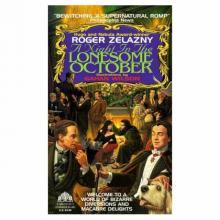 A Night in the Lonesome October
A Night in the Lonesome October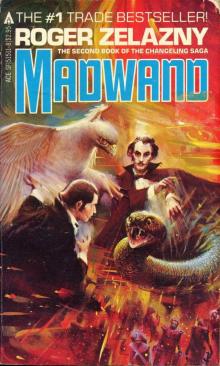 Madwand
Madwand Jack Of Shadows
Jack Of Shadows Lord of Light
Lord of Light The Doors of His Face, The Lamps of His Mouth and Other Stories
The Doors of His Face, The Lamps of His Mouth and Other Stories Guns Of Avalon tcoa-2
Guns Of Avalon tcoa-2 Coils
Coils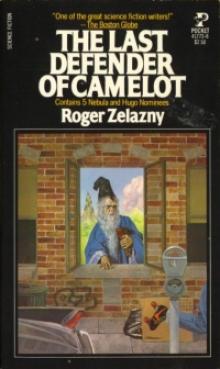 The Last Defender Of Camelot
The Last Defender Of Camelot Creatures of Light and Darkness
Creatures of Light and Darkness This Immortal
This Immortal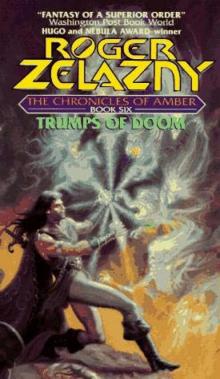 Trumps of doom tcoa-6
Trumps of doom tcoa-6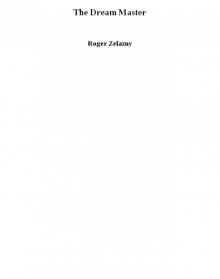 The Dream Master
The Dream Master The Complete Dilvish, The Damned
The Complete Dilvish, The Damned Nine Princes in Amber
Nine Princes in Amber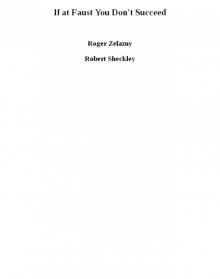 If at Faust You Don't Succeed
If at Faust You Don't Succeed Here there be dragons
Here there be dragons The Doors Of His Face, The Lamps Of His Mouth
The Doors Of His Face, The Lamps Of His Mouth The Great Book of Amber - Chronicles 1-10
The Great Book of Amber - Chronicles 1-10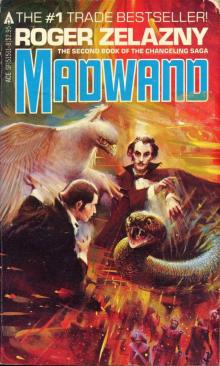 Madwand (Illustrated)
Madwand (Illustrated)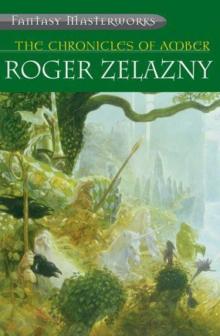 The Chronicles of Amber
The Chronicles of Amber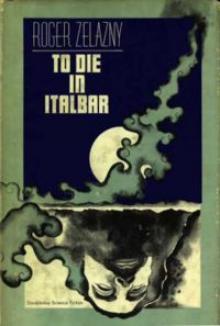 To Die In Italbar
To Die In Italbar The Changing Land
The Changing Land The Furies
The Furies Nine Princes In Amber tcoa-1
Nine Princes In Amber tcoa-1 Last Of The Wild Ones
Last Of The Wild Ones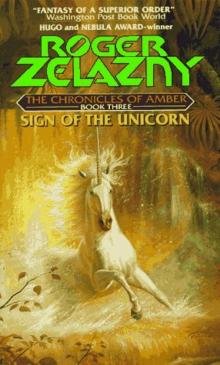 Sign of the Unicorn tcoa-3
Sign of the Unicorn tcoa-3 My Name is Legion
My Name is Legion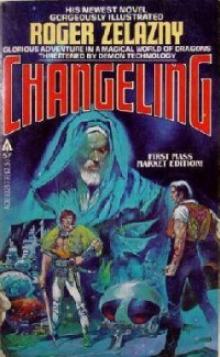 Wizard World 1: Changeling
Wizard World 1: Changeling Changeling
Changeling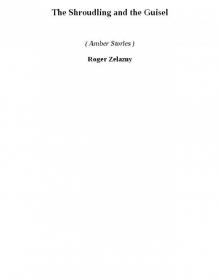 The Shroudling and the Guisel (amber stories)
The Shroudling and the Guisel (amber stories)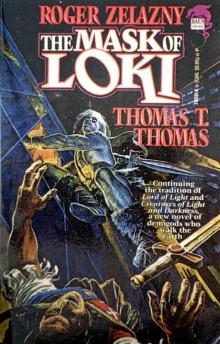 The Mask of Loki
The Mask of Loki A Farce To Be Reckoned With
A Farce To Be Reckoned With Roadmarks
Roadmarks When Pussywillows Last in the Catyard Bloomed (rtf)
When Pussywillows Last in the Catyard Bloomed (rtf) Hall of Mirrors (amber stories)
Hall of Mirrors (amber stories)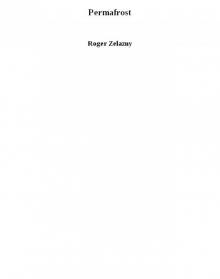 Permafrost
Permafrost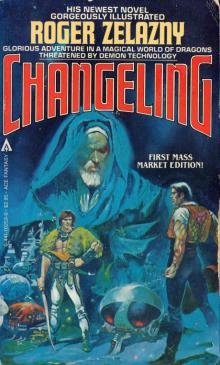 Changeling (Illustrated)
Changeling (Illustrated) Donnerjack
Donnerjack Shadows & Reflections: A Roger Zelazny Tribute Anthology
Shadows & Reflections: A Roger Zelazny Tribute Anthology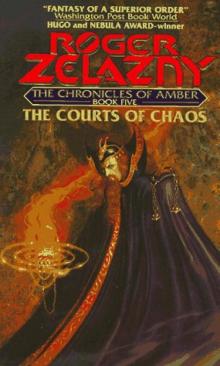 The Courts Of Chaos tcoa-5
The Courts Of Chaos tcoa-5 Flare
Flare Doorsways in the Sand
Doorsways in the Sand The Great Book of Amber
The Great Book of Amber Home Is the Hangman
Home Is the Hangman For a Breath I Tarry
For a Breath I Tarry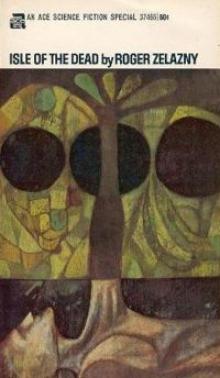 Isle Of The Dead
Isle Of The Dead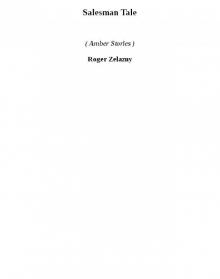 Salesman Tale (amber stories)
Salesman Tale (amber stories) Dismal Light
Dismal Light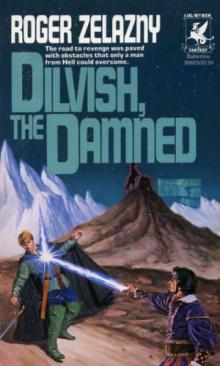 Dilvish, The Damned
Dilvish, The Damned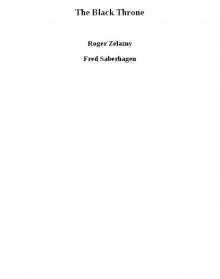 The Black Throne
The Black Throne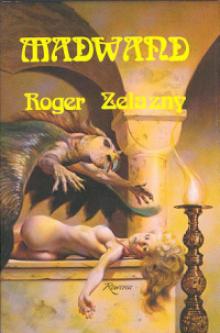 Wizard World 2: Madwand
Wizard World 2: Madwand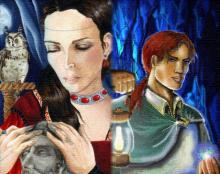 The Salesman's Tale
The Salesman's Tale